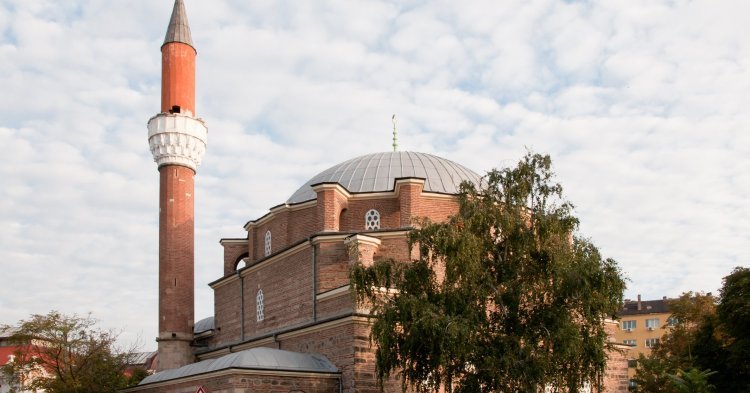Like Islam, Christianity is also of Middle Eastern origin. Even when Emperor Constantine the First signed “treaty of Milan” that recognised social status for Christians in Roman Empire, this edict labelled Christianity as a sect of Jewish faith, practised by Hebrew Israelites.
Like Christianity and Buddhism, Islam is a universal religion and is not a nation or culture, as nationalists claim. Anyone can convert to it, no matter of background or origin, regardless that religious affiliation of Muslims in Europe is widely judged on their skin colour. The only question that should be raised and answered is - why far right groups and other Islamophobic movements treat Muslims as foreigners?
First of all, before the massive immigration from Africa and Asia into Western Europe during the 20th century, religious population in the continent was predominantly Christian and at the same time, growing number of people were adherent to atheist or agnostic views.
Second, by the end of the century, immigrants and citizens of Turkish, Arab and Pakistani/Bangladeshi descent, were socially, culturally and economically segregated in ’European ghettoes’ due to exploitation and racism from the mainstream.
In parallel, European governments could not deal with high unemployment and low educational outcomes among youth of foreign origin. In addition, recognition policies that permitted Islamic centres to be funded from abroad, Muslim communities became even more culturally alienated under foreign influence. Therefore, Muslim children living in France or Germany are obligated to follow customs and traditions of parents’ origins, instead of becoming integrated German or French citizens, practising Islamic faith. Such conditions only violate the universality of Islam and prevent it to adapt into Western European societies. In addition, because of patriarchal values practised in these isolated immigrant communities, many mistakenly believe that Islam suppresses rights of women.
In comparison, in some Islamic societies like Iran and Turkey, a lot of effort is taken to keep literacy rate high among female population and to prohibit polygamy. After the Arab Spring, countries like Egypt and Tunisia attempt to achieve gender equality, as it used to be in Christian West during the 19th and the 20th centuries.
From other hand, ongoing social exclusion with poor economic conditions in European cities, austerity and long-term unemployment are the main catalysts of religious radicalisation, not only among the youth of immigrant origin but also among Muslim converts of native descent.
If the goal of Western European governments is to transform ’Islam in Europe’ into ’Islam of Europe’ and bring Bosnia, Kosovo and Albania into the EU, the integration policies must culturally and linguistically absorb Islamic centres, schools and mosques.
For example, when German person chooses to convert to Islam, he/she has to learn religious teachings in German language instead of Turkish or Kurdish, and must not abandon his/her cultural traditions and values. Funding European mosques by the EU and local governments can diminish the influence of Islamic State, located in the Middle East, decrease the chance of radicalisation among youth and finally, invite Bosniaks, Albanians and Kosovars as culturally European people, into the union. Arabic language can be used for the purpose of understanding the meaning of Qu’ran, which was originally written in local dialect of Arabian peninsula but not to demonstrate European Muslim communities as culturally foreign.
An alternative approach to make Islam an integrated part of European identity is possible in the long-term as history of Christian faith proved so. In the first centuries, when Christianity was almost indistinguishable from original Judaism, gentile followers of messiah Yeshua ha-Notzri (or Jesus of Nazareth) had to strictly practice and learn cultural customs, traditions and language of the Middle-Eastern Hebrews, known today as Jewish people.
Despite that the number of Christ’s followers was rapidly growing in Roman Empire, throughout decades, gentile Christians eventually outnumbered and became more dominant than original Jewish Christians. Churches were losing ties with the Middle East and Jewish diasporas and eventually, social and religious reforms of Emperor Constantine The Great in the 4th century finalised the process. Cultural and linguistic assimilation of Christianity or “Jewish sect” into Roman/European civilisation was completed, despite that Christian faith still nowadays embraces Jewish-Abrahamic religious values.
If European Islam follows very similar process, then religious teachings of Mohammed will become a spiritual part of the EU. Europeanised mosques can become a remarkable architecture of European art and history, in the same way as Christian cathedrals.
Perhaps European Muslim women who also follow European social values, can demonstrate themselves as an excellent example of reformist Islam, gender equality and success in education, career and achievements in sports, politics and science to counterparts living in Muslim countries outside the EU.
In parallel, there is a strong cause to avoid religious conflicts between Muslims and Christians, as both believe in the same God (in Arabic known as Allah), and adherent to the same prophets, especially Jesus (known as Isa in Islam) who is very remarkable in both confessions.
Finally, it is important to keep in mind that Islamic radicalisation is as hostile as Christian extremism, far-right groups and ultra-leftist movements, which daily abuse democracy, civil rights, freedom of speech and expression in the EU and other Western states. And moderate Muslims along with other confessions and civic rights groups can express solidarity together to protect European democracy and security.

Follow the comments: |
|
